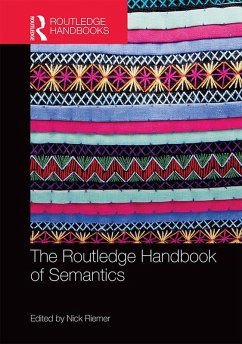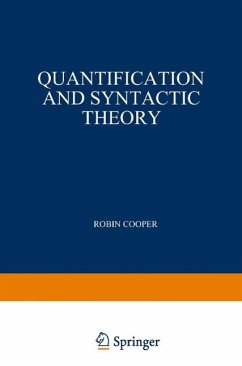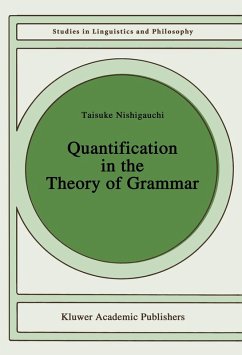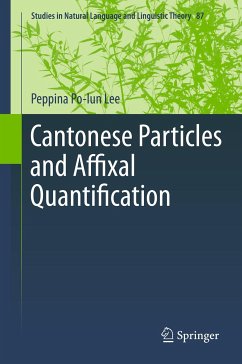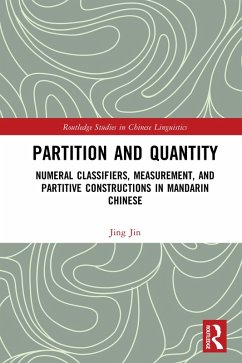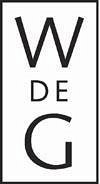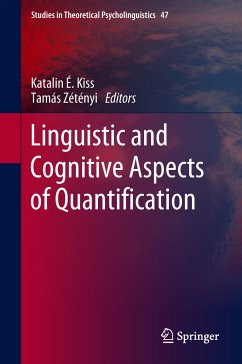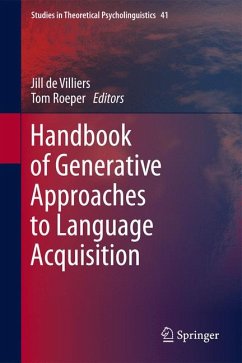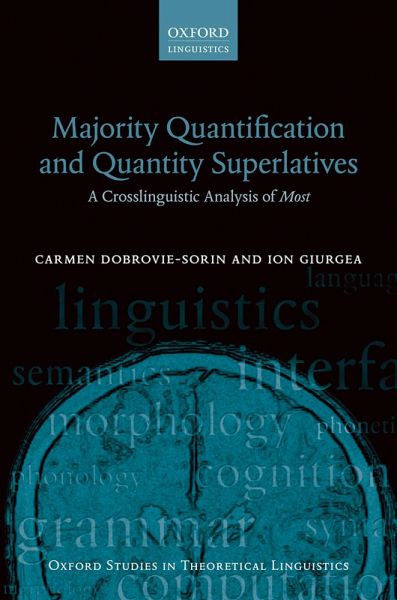
Majority Quantification and Quantity Superlatives (eBook, PDF)
A Crosslinguistic Analysis of Most

PAYBACK Punkte
10 °P sammeln!
This book investigates the syntax and semantics of proportional most and other majority quantifiers across languages. Carmen Dobrovie-Sorin and Ion Giurgea draw on data from around 40 languages to demonstrate the existence of two distinct semantic types of most: a distributive type, which compares cardinalities of sets of atoms, and a cumulative type, which involves measuring plural and mass entities with respect to a whole. On the syntactic side, the most significant difference is between partitive and non-partitive configurations: certain majority quantifiers are specific to partitive constr...
This book investigates the syntax and semantics of proportional most and other majority quantifiers across languages. Carmen Dobrovie-Sorin and Ion Giurgea draw on data from around 40 languages to demonstrate the existence of two distinct semantic types of most: a distributive type, which compares cardinalities of sets of atoms, and a cumulative type, which involves measuring plural and mass entities with respect to a whole. On the syntactic side, the most significant difference is between partitive and non-partitive configurations: certain majority quantifiers are specific to partitive constructions, while others are also allowed in non-partitives. The volume also explores complex expressions of the type the largest part and nominal quantifiers of the type the majority. The authors argue in favour of a quantificational analysis of most, in contrast to many recent studies, but adopt a bipartition-cum-superlative analysis for the largest part. The volume is a large-scale crosslinguistic investigation, offering typological insights as well as case studies from a range of languages, including German, Romanian, Hungarian, Hindi, and Syrian Arabic. The findings have implications for the study of number marking, partitivity, kind reference, (in)definiteness marking, and other crucial issues in linguistic theory.
Dieser Download kann aus rechtlichen Gründen nur mit Rechnungsadresse in A, B, BG, CY, CZ, D, DK, EW, E, FIN, F, GR, HR, H, IRL, I, LT, L, LR, M, NL, PL, P, R, S, SLO, SK ausgeliefert werden.




